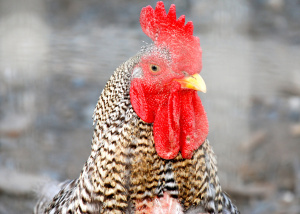Hens and chickens, or breeders and meat?
Part of a GDS content designer's role is to choose the best words to explain what a web page is trying to say. It's got to be easy to understand, simple to find and, it goes without saying, useful. Working on GOV.UK throws extra challenges into this mix.
Firstly, our 'detailed guidance' format contains some of the more complex information that the content design team works on. And while the principles of plain English, search engine optimisation (SEO) and usability are all applied rigorously, these pages are by necessity more dense than the mainstream pages. The users looking for these public sector pearls of wisdom want more facts, background information and in many cases, detailed guidance.
Secondly, the users who need this information are often very specific groups of people.
Here’s just one example. In the case of a detailed guide for farmers, optimising content with the search term 'breeder chicken' is better than using 'hen' or 'day old chick', even though the latter terms are far more popular online. The same applies to 'broilers' and 'chicken meat'.
Farmers and middle class housewives
Consider a poultry farmer looking online for chicken farm welfare regulations. To him, the feathery creatures he farms are affectionately known as 'meat chickens' or 'breeding chickens', or even 'broilers' and 'breeders'. These might well be the words he types into a search engine when looking for information.
To you and me 'keeping chickens' and 'laying hens' are far more familiar terms. This is confirmed by a simple SEO analysis of the poultry-related content on the internet. However, loading the chicken welfare regulation content with these keywords won't be of much use to farmers. Google 'keeping chickens' and you will soon see why.
Similarly, you may think 'hen' is a popular keyword, but in the context of poultry farming a content designer would suggest otherwise. A farmer is unlikely to want to know where to buy a patio-friendly hen house or post a picture of his favourite chick in the Clucks and Chooks forum.
It works both ways too. Most people searching for ‘chickens’ online are unlikely to want to know how to deal with feed hoppers or surplus chicks. Applying intelligent content design and writing in plain English on GOV.UK is a good thing for everyone.



6 comments
Comment by Michael Muir posted on
I really like the title of 'content designer'. In my opinion, and from an organisational development point of view, it's a more accurate description of role than, say, copy writer, or editor, or content officer. And so on.
Is it an official job title in GDS? Is there anywhere I can find more information on profile, responsibilities, tasks etc please?
Comment by baragouiner posted on
I get this but right at the outset how do you know whether the content you're writing is likely to need this sort of thinking? Or does every single piece of content (including Bank holidays) go through the same analysis to consider what different audiences would call it and search for?
Comment by sharonannekean posted on
When designing content one of the most important things to consider is who will be using it and how they might search for it. This information comes from any user data or analytics we can get from Directgov or Business Link. This is as true for the Detailed Guidance content for farmers discussed in my post, as it is for the more widely used Bank Holiday information. At the design stage we use whatever information we have, but the real test is when the content goes live and is actually used. As such, our initial 'designs' will change if we find users are using different search terms to those we expected.
Comment by Andy Key posted on
A good point in general, but... "middle class housewives"? 1975 just called, it wants its cliches back. (www.bbc.co.uk/comedy/goodlife/)
Seriously, it's one thing to identify your audience groupss but quite another to stereotype them.
Comment by sharonannekean posted on
A fair point Andy. That comment was merely intended to inject a little 'Good Life' humour into what can otherwise be quite a dry subject. It goes without saying that there is no room for stereotypes on gov.uk
Comment by sharonannekean posted on
Reblogged this on Sharon Anne Kean and commented:
My thoughts on content design here...